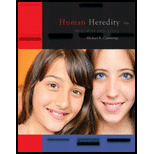
Should he go ahead and enroll on the chance that he would receive the DNA vaccine and that it would be more effective than chemotherapy?
Bruce and his parents moved to a semi-tropical region of the United States when he was about 3 years old. He loved to be outside year-round and swim, surf, snorkel, and play baseball. Bruce was fair-skinned, and in his childhood years, was sunburned quite often. In his teen years, he began using sunscreens, and although he never tanned very much, he did not have the painful sunburns of his younger years.
After graduation from the local community college, Bruce wanted an outdoor job and was hired at a dive shop. He took people out to one of the local reefs to snorkel and scuba dive. He didn’t give a second thought to sun exposure because he used sunscreen. His employer did not provide health insurance, so Bruce did not go for annual checkups, and tried to stay in good health. In his late 20s, Bruce was injured trying to keep a tourist from getting caught between the dive boat and the dock. He went to an internist, who treated his injury and told Bruce he was going to give him a complete physical exam. During the exam, the internist noticed a discolored patch of skin on Bruce’s back. She told him that she suspected Bruce had skin cancer and referred him to a dermatologist, who biopsied the patch. At a follow-up visit, Bruce was told that he had melanoma, a deadly form of skin cancer. Further testing revealed that the melanoma had spread to his liver and his lungs. The dermatologist explained that treatment options at this stage are limited. The drugs available for chemotherapy have only temporary effects, and surgery is not effective for melanoma at this stage. The dermatologist recommended that Bruce consider entering a clinical trial that was testing a DNA vaccine for melanoma treatment. These vaccines deliver DNA encoding a gene expressed by the cancer cells to the immune system. This primes the immune system to respond by producing large quantities of antibodies that destroy melanoma cells wherever they occur in the body. A clinical trial using one such DNA vaccine was being conducted at a nearby medical center, and Bruce decided to participate.
At the study clinic, Bruce learned that he would be in a Phase Ill trial, comparing the DNA vaccine against the standard treatment, which is chemotherapy, and that he would be randomly assigned to receive either the DNA vaccine or the chemotherapy. He was disappointed to learn this. He thought he would be receiving the DNA vaccine.
Want to see the full answer?
Check out a sample textbook solution
Chapter 8 Solutions
Human Heredity: Principles and Issues (MindTap Course List)
- Western blot results: what information can you get? Presence of proteins of your interest Levels of protein expression Levels of protein activation (must use activation state-specific antibody) Decreased function of the ATM kinase in aging mice. A C57BL/6 female 6 month Con IR 20 month C57BL/6 male 6 month 28 month Con IR Con IR Con IR p-ATM (S1981) ATM P-p53 (ser18) Actinarrow_forwardDoes it show the level of proteins? What about the amount? Levels of protein activation? How can you tell? Does the thickness tell you anything? What about the number of the lines?arrow_forwardWB: Protein of interest visualized by fluorescent Protein A Protein Barrow_forward
- Question #4: Assume you are able to use CRISPR to create an allele that will convert a cross-pollinated, sexually reproducing crop plant into an obligate apomict. Your edited obligate apomict plants retains all the CRISPR "machinery" necessary to convert the "sexually reproducing" allele to the "obligate apomict" allele. You plant 100 hectares of your edited obligate apomicts in order to increase seed for sale the following year. Neighboring farms and seed producers are growing many different un-edited sexually reproducing varieties of the crop. If your neighbors plant seed harvested from their crops that was pollinated by your crop, should they expect these seeds to generate apomictic or non-apomictic plants? Type your answer here:arrow_forwardcalculate the questions showing the solution including variables,unit and equations all the questiosn below using the data.show solving and answer a) B1, b) B2, c) hybrid rate constant (1) d) hybrid rate constant (2) e) t1/2,dist t1/2,absorb f) t1/2,elim k) apparent central compartment volume (V1,app) p) total AUC (using short cut method) apparent volume of distribution based on AUC (VAUC,app) apparent clearance (CLapp) absolute bioavailabilty of oral route ( AUCiv =116ml)arrow_forwardPlease help me to draw this by hand. In as much detail as possible, hand draw a schematic diagram of the hypothalamic-pituitary-gonad (HPG) axis in the human female. Be sure to include all the relevant structures and hormones. You must define all abbreviations the first time you use them. Please include (and explain) the feedback loops.arrow_forward
- "One of the symmetry breaking events in mouse gastrulation requires the amplification of Nodal on the side of the embryo opposite to the Anterior Visceral Endoderm (AVE). Describe one way by which Nodal gets amplified in this region." My understanding of this is that there are a few ways nodal is amplified though I'm not sure if this is specifically occurs on the opposite side of the AVE. 1. pronodal cleaved by protease -> active nodal 2. Nodal -> BMP4 -> Wnt-> nodal 3. Nodal-> Nodal, Fox1 binding site 4. BMP4 on outside-> nodal Are all of these occuring opposite to AVE?arrow_forwardIf four babies are born on a given day What is the chance all four will be girls? Use genetics lawsarrow_forwardExplain each punnet square results (genotypes and probabilities)arrow_forward
 Human Heredity: Principles and Issues (MindTap Co...BiologyISBN:9781305251052Author:Michael CummingsPublisher:Cengage Learning
Human Heredity: Principles and Issues (MindTap Co...BiologyISBN:9781305251052Author:Michael CummingsPublisher:Cengage Learning Human Biology (MindTap Course List)BiologyISBN:9781305112100Author:Cecie Starr, Beverly McMillanPublisher:Cengage Learning
Human Biology (MindTap Course List)BiologyISBN:9781305112100Author:Cecie Starr, Beverly McMillanPublisher:Cengage Learning- Lifetime Physical Fitness & WellnessHealth & NutritionISBN:9781337677509Author:HOEGERPublisher:Cengage





